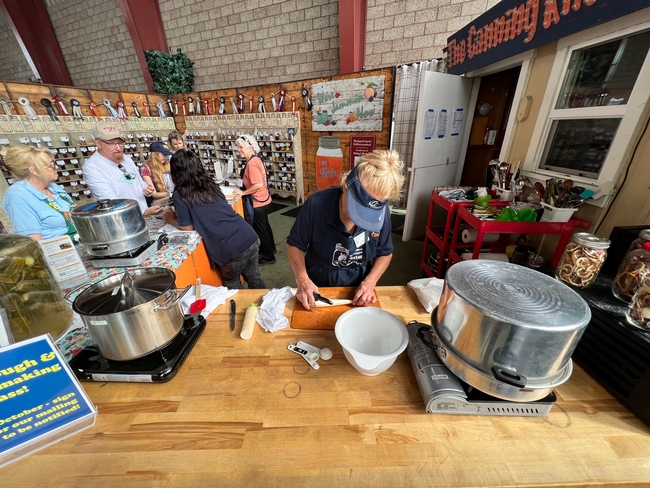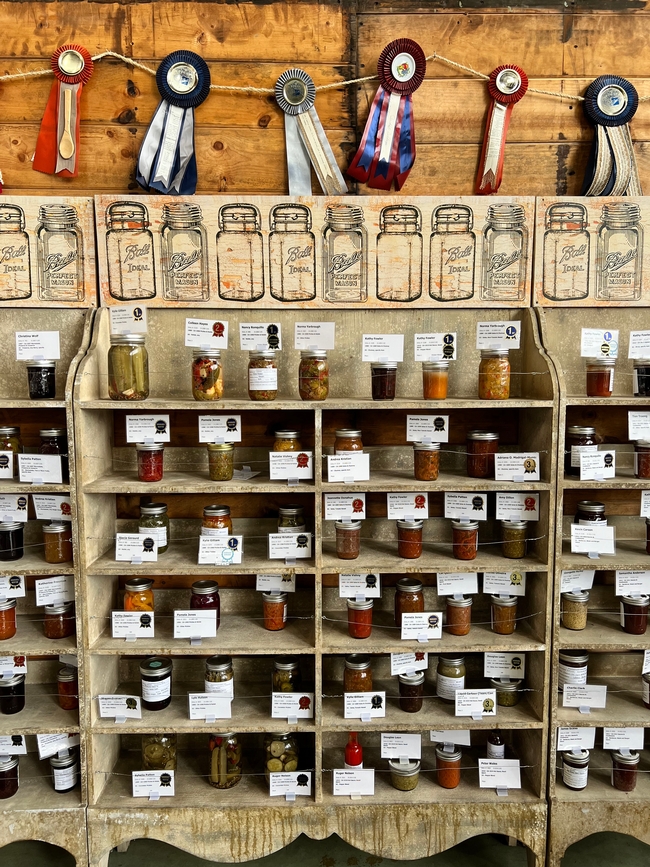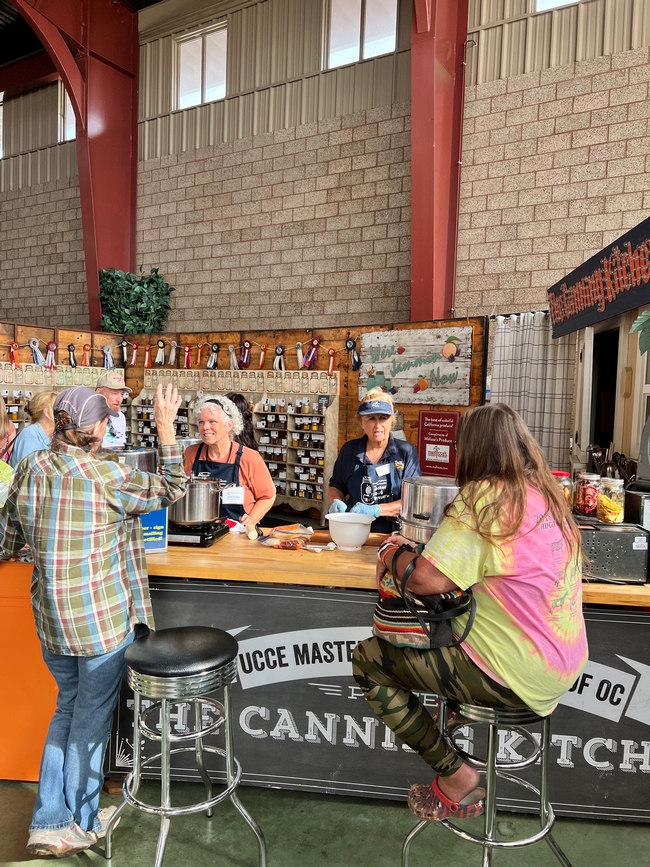More than a TikTok trend, preservation is the future of food
UC Master Food Preservers give live canning demonstrations at Orange County Fair
If you visited the Orange County Fair in Costa Mesa during the past month, you might have seen the Master Food Preservers of Orange County in their rustic farmhouse-themed kitchen located in the OC Promenade exhibit hall.
If the decor did not catch your eye, the colorful rows of glass jars lined along the walls certainly would have. For an entire month, three volunteers conducted live canning demonstrations from 11 a.m. to 8 p.m. five days a week. They are with the UC Master Food Preserver Program, a public service and outreach program under UC Agriculture and Natural Resources.
The OC Fair is UC Master Food Preserver's largest event in Orange County. Last year, the UC Master Food Preservers engaged 7,000 people at their booth.
For over 30 years, the UC Master Food Preserver program has trained hundreds of volunteers statewide to keep Californians safe as they use culturally appropriate and research-based practices to preserve food in the home and provide engaging ways to explore healthy food.
Food preservation has a deep history rooted in human survival. Whether freezing, drying, fermenting or pickling, preservation is a practice that has prolonged the life of food and humans. Other benefits include reducing food waste and increasing food security.
The latest form of preservation, called canning, was introduced in the early 1800s according to a Smithsonian article. By placing food in a glass jar and heating it to a certain temperature for a prescribed period of time, oxygen is removed and a vacuum is created. This process prevents the growth of undesirable bacteria, yeasts and molds, thus keeping the food from spoiling.
This is what you would have found the UC Master Food Preservers demonstrating at the OC Fair.
During her shift, Flo Vallejo, UC Master Food Preserver since 2018, carefully chopped carrots and daikon into thin slices and placed them inside small mason jars with spices inspired by Vietnamese cuisine.
Between the produce donated by Melissa's Produce and the diverse spices donated by Tampico Spice, the possibilities of what you will see the UC Master Food Preservers canning are endless.
“This is something my great-grandmother, grandmother and mother did. I never understood it because they didn't let the little kids in the kitchen,” said first-year UC Master Food Preserver Alice Houseworth.
Many of the UC Master Food Preservers have some experience with canning, whether it be a practice passed down from generation to generation, or, in Houseworth's case, something they watched their elders do as a child.
Some might view canning as a hobby, but according to the UC Master Food Preservers, food preservation is an opportunity to prepare for economic and climatic change.
Esa Kiefer, another UC Master Food Preserver since 2018, expressed her concern for the rising prices of food and decline in arable land. “I feel like now is the time to prepare for these changing times,” she said. “Who knows what the future will look like for food?”
Perhaps the future of food will come from glass jars.
“You can even can chicken,” Houseworth said. “When it's cheap at the grocery store, you can buy it and use the pressure canner and then eat it when chicken prices go up.”
Vallejo recalls when pickling and canning were trending on social media during the stay-at-home phase of the COVID-19 pandemic, making it difficult to find mason jars.
“Preservation has been done for a long time. When I saw a lot of people doing it during the pandemic, I thought it was just because people had time on their hands. But I realized that many became concerned about the food supply and accessibility,” she explained.
The resurgence in food preservation interest makes the work of the UC Master Food Preserver program much more essential. Whether you are feeding a large family, living in a food desert or managing a tight budget, food preservation ensures you are fed today, tomorrow and beyond.
To learn more about the Master Food Preserver Program or to locate the nearest program in your area, visit: https://mfp.ucanr.edu/.



